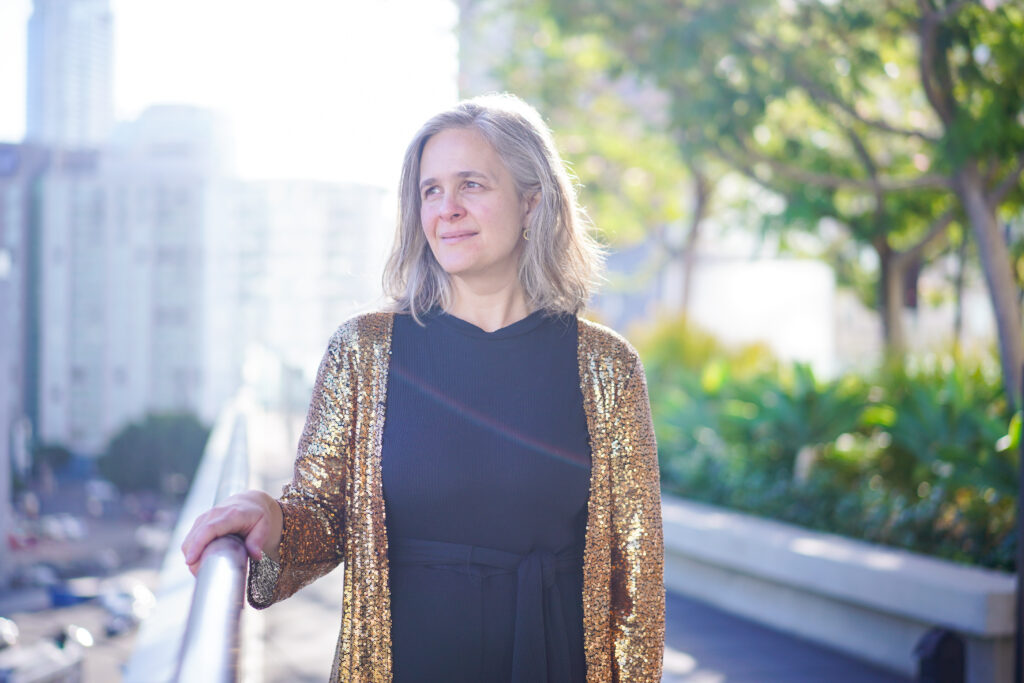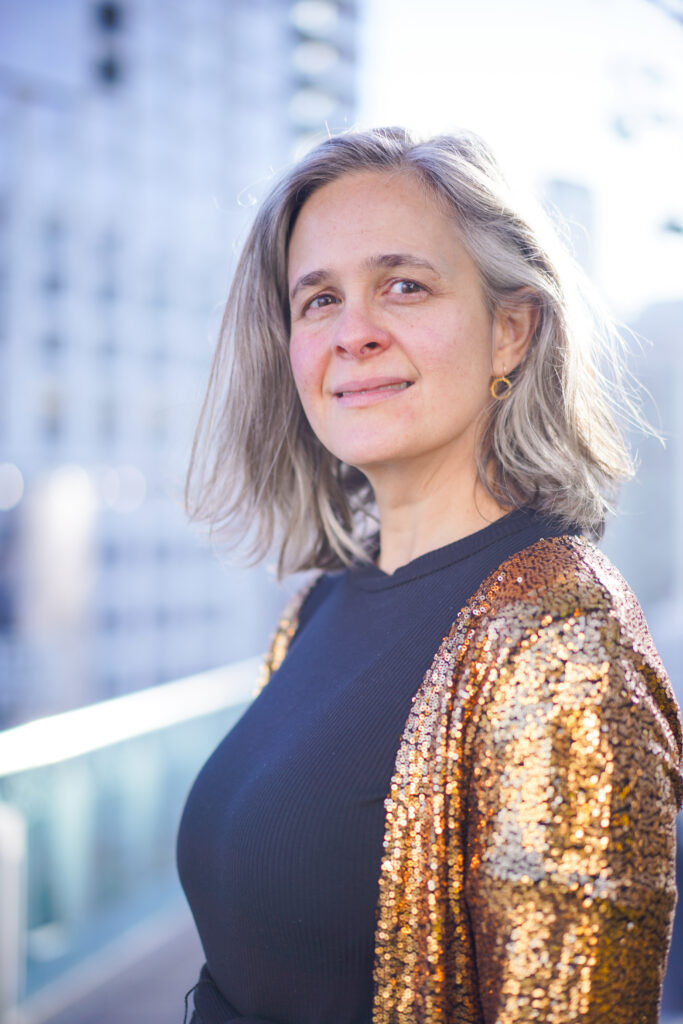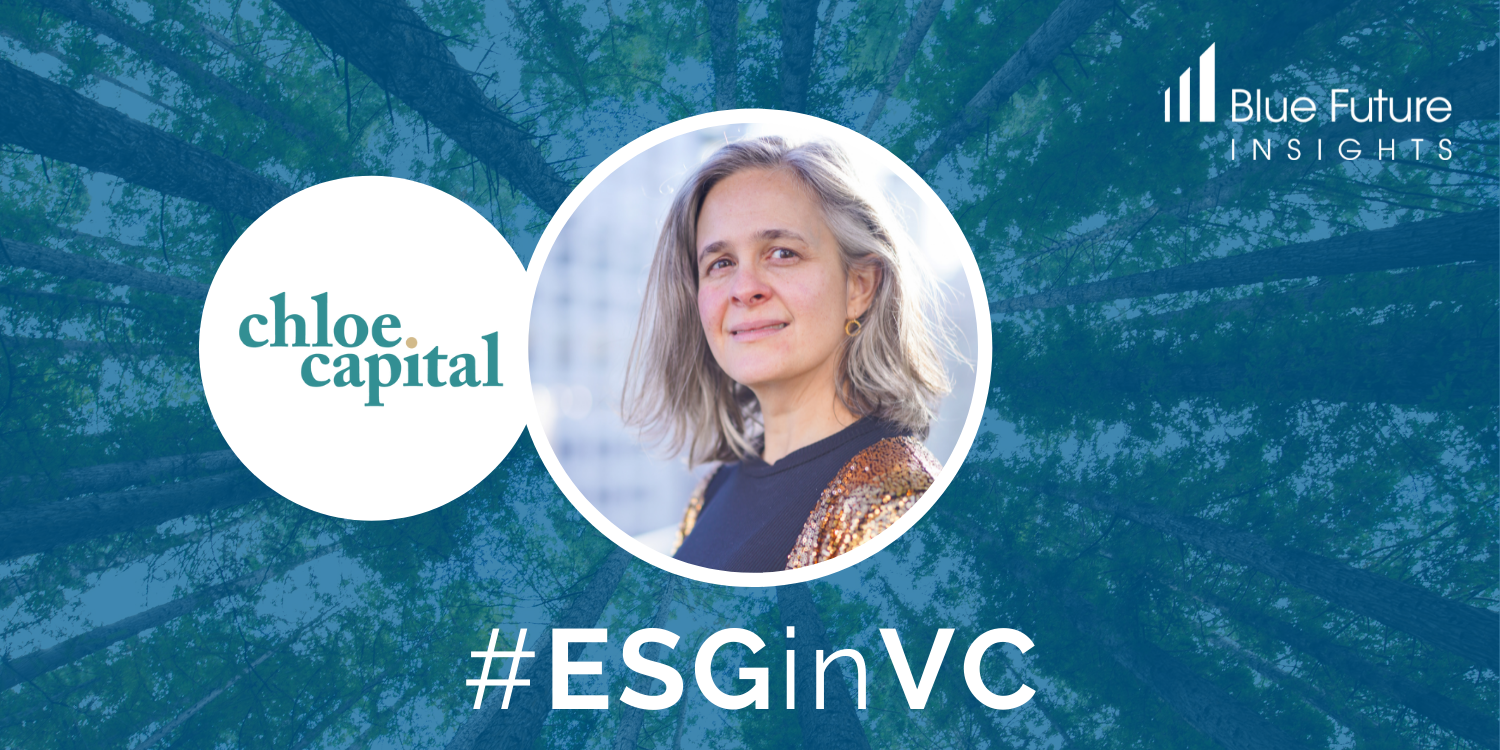With our #ESGinVC initiative, we want to foster a discussion around ESG and help each other develop and improve our frameworks. As part of this initiative, we spoke to leading managers and LPs about their ESG frameworks. The long-form interviews will be published in a reader on our website, while we will regularly post interview extracts on our social media channels (Linkedin — Twitter — Medium).
The interview below is with Elisa Miller-Out, Managing Partner at Chloe Capital.
– – –
Chloe Capital is a fund that seeks to decrease the gender and diversity gap in entrepreneurship. How do you approach diversity and inclusion as a fund, do you have specific metrics and frameworks that you apply?
I’m really happy to talk about our ESG and gender diversity lens and some of the frameworks we use. To define the terms first, there are several angles to think about this topic. In the broadest sense, you can say that ESG is simply about awareness. It means looking at how companies impact the environment and society, beyond just looking at its finances.
One level down, you get to frameworks like Socially Responsible Investment (SRI), where it is all about screening out bad business categories like gambling, firearms, or terrorism. Finally, there is an even more involved layer to ESG — actual impact investing. Here we are not just screening out, but are talking about businesses actively making a positive difference.
“…diverse groups are a tremendous financial opportunity that has been overlooked and untapped.”
At Chloe Capital, we approach the topic from all three angles and try to tackle ESG and SRI in their most advanced form. We intentionally invest to make a positive impact, especially through the gender and diversity lens.
When it comes to quantifying our impact, we have certain metrics that we look at, starting with company leadership. On the gender side, we only invest in companies that have at least one person on the leadership team who identifies as a woman and who has 20% or more equity in the company. Our entire portfolio meets this metric. We also apply a diversity lens, where we look to have someone from the BIPoC community in a leadership C-Suite role, also with at least 20% equity. Over half of our portfolio currently meets this.

Moving beyond just the leadership, we ask ourselves if there is additional intentionality to the gender and diversity lens. For example, does the company benefit women or BIPoC communities in any way? It is not a requirement for our portfolio companies to have a specific women-related benefit. But by the fact that we have intentionally chosen diverse founders, about 70% of our companies do have that benefit organically.
It is important to stress that we’re not sacrificing the financial piece in order to make an impact, but rather doing both. In fact, it’s been proven that investments with a gender and diversity lens perform better financially. Based on multiple studies, the data is there to show that portfolios that are more diverse, perform better financially and exit earlier. Part of this is due to the advanced preparation that women do before they seek funding, making them very prepared as founders.
Do you believe that founders put enough emphasis on diversity and inclusion? How do you support and mentor your companies in this area?
Diversity inclusion is much more likely to happen organically when you start at the top. In other words, when you start with the leadership team being diverse, you’re going to naturally have more diverse networks to reach out to as you build the team. That said, a diverse leadership doesn’t always guarantee a diverse team. As you build out your team further, there still needs to be intentionality around this issue.
At Chloe Capital, we start with a resource kit that we share with founders to equip them with diversity and inclusion resources, strategies, and recruiting tips. We’ve been doing work in this space for many years. Even before founding Chloe Capital we were working in other organizations focused on diversity and inclusion in the technology space. This is something we’ve got a lot of strategies around that we’ve built up through the years, with many relationships with organizations that also focus on this topic.
“One of the best things you can do as a manager is to intentionally invite people to the table from different communities...”
We do not mandate a specific set of requirements for founders around their diversity and inclusion strategy, but we share with them as many resources and toolkits as we can. One of the best things you can do as a manager is to intentionally invite people to the table from different communities, not just wait for them to apply. A lot of people might not apply for something if they don’t feel that it’s for them, or if they don’t feel that they check every box. This is especially true of women founders, so you need to be intentional about inviting candidates to apply outside of your network.

A topic that is still almost taboo in the VC industry is that of parental leaves. In the current environment, it is often very hard for women to return to their position after being absent. Do you have a parental leave policy at Chloe Capital and how do you think VC firms should think about this topic?
This is a fantastic question and one that profoundly impacts all women, not just VCs. Parental leave for mothers is a larger issue that needs to be tackled on both the federal and state level, as well as individual company levels. For me, it’s never been a choice between working and motherhood — I’ve always been a working mother. Chloe Capital is named after my daughter and our central mission is to create a better future for all our daughters and granddaughters and show them the right role models.
At Chloe Capital, 75% of our leadership team are mothers, while around 70% of our portfolio founders are mothers as well. Naturally, parenthood is something we’ve thought about a lot. It was something that we had to address right away when we founded our company because one of our core leadership team members was pregnant when we were starting Chloe Capital. We had to form a maternity leave policy before we had fully launched all our legal documents!
Dealing with this ourselves showed us that you have to approach parental leaves from multiple angles. First, you need to figure out how the colleague will get paid for the leave time. Luckily, there are many state and country benefits that you might be able to leverage. Then you need to supplement the salary to make sure that you can pay somebody in full while they’re out on leave.
Next, the team needs to think about how to best cover the projects during the absence. In our case, we covered certain parts of her work with a part-time position that we were able to hire during that time. For the rest of the work, the rest of our team just pulled together to supplement wherever we can.
She was out for about four months and it was a significant commitment to figure it all out. We were doing all of this while we were on tour, traveling around the country doing our Invest in Women Tour. Right near the end, the leadership team member joined the tour with the baby. It was an adventure, but a lot of fun too!

Female founders receive only 2% of all venture funding, while female VCs represent only 13% of decision-makers in the industry. How do you think the VC ecosystem as a whole should address this issue and contribute to a more equitable and inclusive world?
First, it’s really important to recognize that diverse groups are a tremendous financial opportunity that has been overlooked and untapped. There is a massive financial opportunity, especially amongst the smaller, emerging fund managers who are women and BIPoC Communities.
“We’re not going to see real systemic change until we move the big pools of billions of dollars of institutional capital...”
So far, very little capital has gone to these groups. But when the capital does flow to this industry, the returns will be tremendous. When women do have access to capital and resources, they deliver a better return on investment. That’s been proven out even in portfolios like ours, where our portfolio has already doubled in value. That all that said, some of the best solutions out there are the ones that have found creative ways to move larger sums of institutional capital to smaller and emerging VCs.
We’re not going to see real systemic change until we move the big pools of billions of dollars of institutional capital. And that won’t happen until we get more people on the institutional LP side who are creative and strategic and see this opportunity. They also need to find ways to change some of their rules and structures, which are frankly outdated and often don’t allow them to invest in this very exciting sector.
To end, I want to say one more thing that is important on this. A lot of people like to talk about equity, diversity, and inclusion. But what we need is less talk and more money moving in. It was very important to us that from day one of Chloe Capital, we were investing money. When we started our first signature program and brought female founders and investors together, we moved capital and made investments on the spot.
We need to see more of this in our industry. Fewer people who just release a statement about diversity, equity, and inclusion, and more people who move the capital.
– – –
About Elisa Miller-Out
Elisa Miller-Out is a business leader, investor, technologist, and mother. She is chair of the board for Singlebrook, a web software development firm she co-founded in 2006, and for which she served as CEO until 2016 when she oversaw the acquisition of the firm’s largest division. Not one to sit still, in 2017 she co-founded Chloe Capital, an early-stage venture capital fund on a mission to bring more women into technology investing and leadership. To date, Chloe Capital has funded 10 companies with a combined portfolio value of $70 million and drawn more than 15,000 members to its #InvestInWomen movement.
Website – Linkedin – Twitter
About Chloe Capital
Chloe Capital is a movement-driven venture capital firm investing with a gender and diversity lens. They operate a fund and programs for founders worldwide as part of their #InvestInWomen tour.
Website – Linkedin – Twitter
About Rodrigo Ferreira
An entrepreneur at heart, Rodrigo first interacted with the startup ecosystem in Lisbon, gaining valuable insights and experience in the space. In Munich since 2019, Rodrigo focuses on sourcing and leading new investments and follow-on opportunities for BFP investing in both emerging managers and early-growth startups across the world. Before BFP, he had stints in both Investment Banking and Assets Management. Rodrigo holds a Master of Science in Finance from ESADE Business School in Barcelona, a Bachelor of Science (Hons) in Economics, and a Bachelor of Science in Management from the University of Lisbon.
Linkedin – Twitter – Medium
About Blue Future Partners
Blue Future Partners is a Fund of Funds with decades worth of experience in investing in Venture Capital. We specialize in backing Emerging Managers focused on early-stage technology investments.
Website – Linkedin – Twitter – Medium








